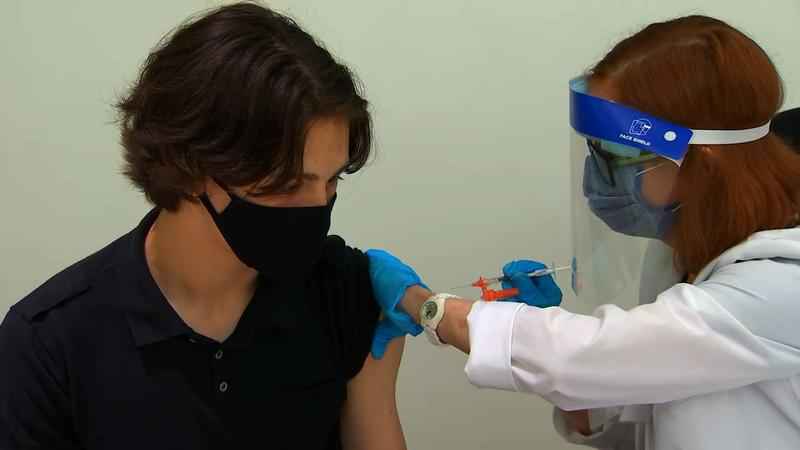Minnesota health officials push vaccinations for minors, but parents get the final say
[anvplayer video=”5053539″ station=”998122″]
There’s been a big push by Minnesota health officials to get as many kids as possible vaccinated against COVID-19 as school starts, but what if parents and their student are at odds over getting vaccinated?
University of Minnesota public health experts say it’s important for parents to have a well-productive conversation with their kids about the vaccine, but at the end of the day, kids aren’t allowed to get a COVID-19 shot without parental approval.
Minnesota state law says parental consent is necessary to get the vaccine, but there are some exceptions.
About 200 people per day have been stopping to get a vaccine at the Minnesota State Fair.

[KSTP]
For Keanne Pfeifer, a St. Paul native, getting the vaccine is a shot at more freedom.
“I wanted it more because a lot of my friends’ parents wanted me to have the vaccine to meet up,” Pfeifer said.
The 14-year-old said making the decision to get the shot was 50/50.
“I asked my mom and she said she was going to wait until people made sure people weren’t growing horns and tails,” he said.
The Pfizer COVID-19 vaccine is already approved for ages 12 and older, but under Minnesota law, children younger than 18 need one more stamp of approval from parents.
“It is pretty black and white for the most part. Adolescents will need the consent of their parents to get a COVID-19 vaccine,” said Jaime Slaughter-Acey, an assistant professor at the U of M School of Public Health.
But there are exceptions to the rule.
Minnesota minors don’t have to get consent from a parent or guardian if they are not living with parents, have given birth or have been married, or if the person rendering the service is acting in good faith.
"I think talking through it is the most important thing that you can do,” Slaughter-Acey said.
Some parents said parental consent is necessary.
"I feel that’s OK. I feel it should be the parent giving consent but also the kids understanding why they’re getting it as well,” said Kayli Sparks, a parent from Princeton.
Sparks is getting her children, ages 12 and 14, vaccinated to give her family peace of mind.
“I work in the medical field, so I see COVID at work every day and I just want my kids protected from COVID,” she said.
If having the COVID-19 vaccine conversation with kids is difficult, experts recommend bringing in a third person, such as a health expert, to help mediate the conversation.